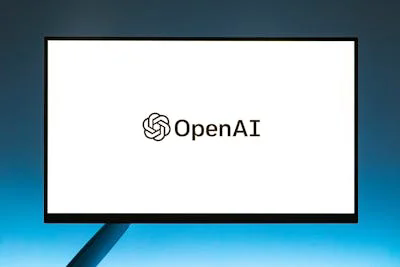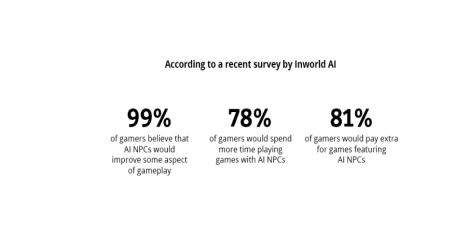The convergence of Artificial Intelligence (AI) with the localization of video and computer games is revolutionizing the way developers work and the player experience. Sophisticated and user-friendly AI tools can now perform many localization tasks, such as automated dubbing and subtitle generation, faster and more cost-effectively than traditional methods. The advancements in AI are opening up new markets, enhancing inclusivity, supporting indie developers, enabling real-time gaming, and enriching cross-linguistic and cultural player experiences.
Impact Scope: Benefiting Underserved Communities
Traditional localization strategies often focus on widely spoken languages due to considerations of return on investment (ROI) and resource limitations. However, AI makes it economically feasible to translate games into less common languages, expanding the reach to untapped markets and historically underserved communities. This represents a significant opportunity for game developers and broadens inclusivity by making games accessible to a wider audience and in more languages.
Additionally, AI can help identify content that requires cultural adaptation to avoid offending or alienating players from certain regions. Players are more likely to engage with and support games that resonate with their cultural background, leading to a more diverse gaming community.

Power-Up: Supporting Indie Developer
Due to limited localization budgets, indie game developers often face significant challenges in
reaching a global audience. AI can automate many aspects of the localization process, reducing
manual intervention and allowing indie developers to focus on the creative aspects of the game
development. Generative AI tools like ChatGPT can even help developers create dialogue that
sounds natural in languages they do not speak.
AI dubbing and voice tools are particularly useful for indie game studios. Products like OpenAI's
Whisper has made automated dubbing a mainstream trend, offering professional-level
voiceovers in multiple languages without extensive recording. Another platform, Deepdub Go,
is an AI-driven audio and video localization platform that helps small developers cost-effectively
achieve high-quality dubbing. Deepdub's technology includes voice cloning and voice feature
editing for better lip-syncing. The platform uses emotion-cue AI to produce natural and
engaging dubbing, maintaining the original emotional intent across various languages.

Furthermore, AI plays a key role in Quality Assurance (QA) and legal compliance. Automated
QA tools can identify inconsistencies and errors in localized content, while AI-driven compliance
checks ensure that games adhere to local laws and regulations.
Fast Track: Real-Time Localization
AI is improving real-time localization, aiming to provide players with a seamless, immersive
experience regardless of the language they speak or where they are located. This is
particularly important in multiplayer games, where instant translation allows all players to
communicate in real-time. AI-driven tools can quickly translate chat messages and in-game
text, allowing players speaking different languages to interact easily and enjoy a more
inclusive gaming experience.
There are also live service games that are "always online" and require frequent updates.
AI can help manage the continuous flow of new content that needs localization, ensuring
that players around the world receive updates simultaneously. This is crucial for maintaining
player engagement and competitiveness in the global market.

Upgrade: Achieving Higher Quality
AI voice cloning preserves emotional intonation, creating dubbing that is more realistic and
contextually appropriate than ever before. These tools can synthesize voices that match
the tone and emotion of the original characters, ensuring that the dubbing remains
consistent and engaging across different languages.
Dubbing tools use AI to synchronize character lip movements with translated speech. These
dubbing solutions can handle complex dialogues and subtle emotions, making localized
versions of games as engaging as the originals, while enhancing player immersion and
accelerating localization.

Participant: Involving Humans in the Process
Despite the remarkable progress of AI, the human touch remains an indispensable part
of game localization. While AI can easily handle certain tasks, it often overlooks the nuances
that makes a game feel real. Human linguists capture nuances that AI might miss, ensuring
that the game's story and characters feel authentic and engaging in every language.
 Moreover, AI models like ChatGPT are trained on vast amounts of data, which often contain cultural biases and are heavily English-centric. Without human oversight, these biases and other inaccuracies could slip through, creating games that might inadvertently offend or distort facts.
Moreover, AI models like ChatGPT are trained on vast amounts of data, which often contain cultural biases and are heavily English-centric. Without human oversight, these biases and other inaccuracies could slip through, creating games that might inadvertently offend or distort facts.
In addition to voice, improvements in context-aware translation (advanced AI models that understand and translate game content by considering a broader narrative and dialogue context) are reducing the risk of mistranslation, preventing the disruption of immersion and player experience.
Finally, AI can introduce more and better non-player characters (NPCs) in games, thereby improving player satisfaction by making the gaming environment more immersive. According to a recent survey by InworldAI, 99% of players believe AI-based NPCs would improve some aspects of gameplay, 78% of players would spend more time playing games with AI NPCs, and 81% of players would pay extra for games with AI NPCs.
 The End Result: Realizing Potential
The End Result: Realizing Potential
The "conventional" way of game development is changing rapidly by leveraging advanced AI. From indie studios to large franchises, the combination of AI and game localization is reshaping how games attract a global audience by increasing speed, cost-effectiveness, and quality.
However, the human factor remains at the core of this process. AI excels at automating processes, translating large volumes of content, and achieving real-time localization. But human linguists provide valuable cultural expertise, sensitivity, and authentic storytelling abilities that AI cannot replace.

The true potential of AI in game localization lies in its role as a force multiplier. By localizing games
into more languages more quickly, helping indie developers compete globally, and providing a more
culturally authentic experience for players worldwide, AI is poised to further democratize game
development and improve the global gaming landscape.
This article is from the multilingual, New Universe Intelligent MTPE.


